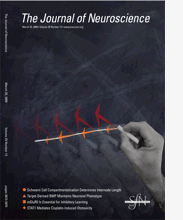The neurobiology of reference-dependent value computations
A key focus of current research in neuroeconomics concerns how the human brain computes value. Although, value has generally been viewed as an absolute measure (e.g., expected value, reward magnitude), much evidence suggests that value is more often computed with respect to a changing reference point, rather than in isolation. Here, we present the results of a study aimed to dissociate brain regions involved in reference-independent (i.e., “absolute”) value computations, from those involved in value computations relative to a reference point. During functional magnetic resonance imaging, subjects acted as buyers and sellers during a market exchange of lottery tickets. At a behavioral level, we demonstrate that subjects systematically accorded a higher value to objects they owned relative to those they did not, an effect that results from a shift in reference point (i.e., status quo bias or endowment effect). Our results show that activity in orbitofrontal cortex and dorsal striatum track parameters such as the expected value of lottery tickets indicating the computation of reference-independent value. In contrast, activity in ventral striatum indexed the degree to which stated prices, at a within-subjects and between-subjects level, were distorted with respect to a reference point. The findings speak to the neurobiological underpinnings of reference dependency during real market value computations.
Download articolo completo:



